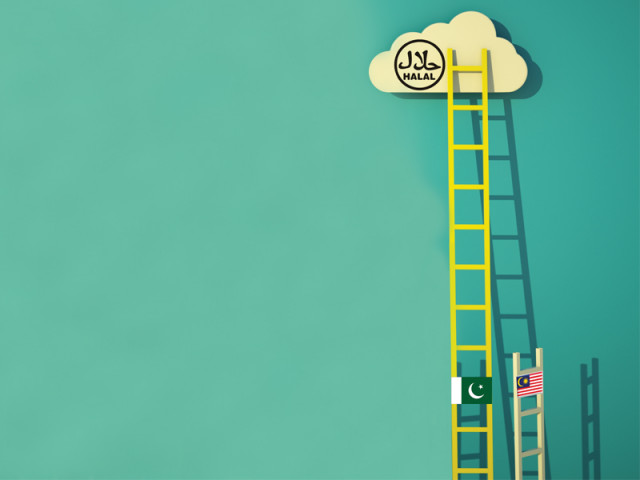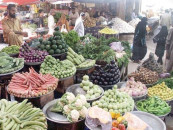Halal industry: Pakistan has more potential than Malaysia to thrive
This depends on the government realising the profits of the business sector.

Sitting in McDonald’s in Pakistan, one cannot help notice the halal sign on the packaging of their delectable quarter pounder. Although there is uncertainty on who issues halal certification for McDonald’s food sold in Pakistan, there is no ambiguity at all on the importance of eating halal in the life of over 1.6 billion Muslims in the world.
Consequently, a new and dynamic global halal industry is thriving. The halal brand is not only relevant to food but also pharmaceuticals and fashion including make-up, leather bags and shoes. In countries like Malaysia, the government is pushing hard to make the country a global hub for halal products. This is in addition to the central position that Malaysia has already acquired for itself in the field of Islamic banking and finance.
As Pakistan is another country where Islamic banking and finance is thriving – with over 8% share of Islamic banks in the national banking sector – the relevance of the halal industry is even more important. Malaysia is a country with approximately 29 million people, with about 60% Muslim population. Pakistan, on the other hand, has a population of over 170 million, and predominantly Muslim. Furthermore, unlike Malaysia where production and consumption of non-halal items like alcoholic beverages and other food items like pork are readily available, Pakistan has a more pure regime where consumption of alcohol is banned except for a tiny non-Muslim population and the use of pork and other non-halal food items are virtually non-existent. Hence, Pakistan stands a better chance of emerging as a global hub for the halal industry.
There is a definite need to create a link between the halal industry and Islamic finance. It is true that halal products cannot be deemed fully halal if they are produced through a process that is not entirely Shari’a compliant. As it happens, many halal manufacturers use interest-based borrowing or other Shari’a-repugnant methods of finance, therefore their products cannot be considered 100% halal. Although from a strict Shari’a viewpoint, sale and consumption of such products is not considered impermissible, there is little doubt that such products are not produced through a Shari’a compliant process.
One way of promoting the link between the halal industry and Islamic finance is to ensure Islamic banks and financial institutions only finance halal manufacturers. This can be done by requiring all those seeking finance from Islamic banks to provide a halal certificate before the final approval of their financing application. This halal certification should come from a private body or one sponsored by the government, which should draw its legitimacy from representation of Shari’a scholars from around the world. This body should also be a member of the Organisation of Islamic Conference (OIC).
A similar kind of requirement should be introduced for investing in stocks of listed companies. Although it will be difficult to make this a strict general requirement for investing in global equities because there are not very many halal businesses listed on stock exchanges around the world, it is feasible to construct global, regional and national halal indices. There have been some attempts in this direction in the past, but there is a need to give it an industry level push to promote investment-level linkages between Islamic finance and the global halal sector.
It must not be difficult to identify halal stocks on the stock exchanges in Pakistan. At present, there are about 90 Shari’a compliant stocks on the Karachi Stock Exchange (KSE). Al Meezan Investment Management Limited, a subsidiary of Meezan Bank, applies a rigorous Shari’a screening methodology to calculate and maintain KSE Meezan Index 30 (KMI-30), which comprises 30 top Shari’a compliant stocks on the KSE.
Pakistan, with a huge Muslim population, stands a chance of becoming a global centre of excellence for halal business, if the government pays attention to this lucrative business sector. Halal in the Muslim world is like “organic” in the West, and Pakistan can claim to be a global halal hub if the government spends some time and resources on delineating a halal strategy for businesses in the country.
THE WRITER IS AN ECONOMIST AND A PHD FROM CAMBRIDGE UNIVERSITY
Published in The Express Tribune, August 6th, 2012.


















COMMENTS
Comments are moderated and generally will be posted if they are on-topic and not abusive.
For more information, please see our Comments FAQ